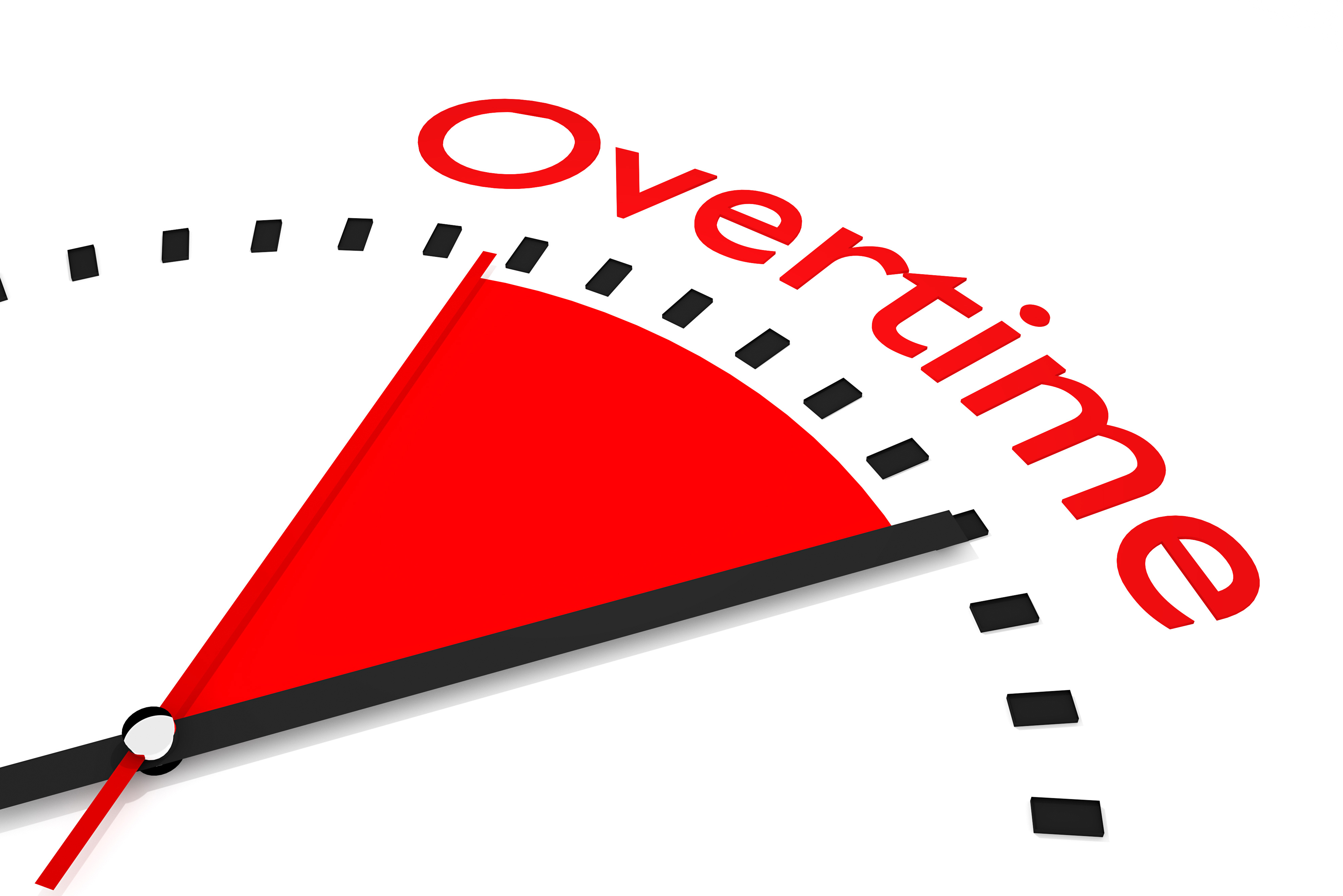Overtime Megan Videos - Your Pay Questions Answered
For many people, putting in extra hours at work feels like a regular part of life. Whether it is staying late to finish a project or picking up an extra shift to help out, that added effort can mean more money in your pocket. Lately, there has been some buzz about how these extra earnings, and even tips, might get a little help from new tax ideas coming from lawmakers. It is a topic that touches a lot of folks, and for very good reason, too.
Imagine, if you will, the thought of earning a bit more and keeping a larger share of it. That is the basic idea behind these proposed changes. Both the folks in the Senate and those in the House of Representatives have put forward ideas that include some nice breaks on the taxes you might pay on both the money you earn from tips and the money you get for working beyond your regular schedule. It is a proposal that could, in a way, mean a little extra breathing room for many household budgets, so.
Yet, as with most things related to rules and money, the actual impact can be a bit more involved than it first seems. While the general notion of paying less tax on your hard-earned extra cash sounds appealing, the real question for many is just how many workers will actually see this benefit. It is a matter of figuring out who qualifies, what the rules are, and how these potential changes might play out for everyday people, you know?
- The Empress Tarot
- Abby And Brittany Hensel
- Ali Larter
- Kim Cattrall Movies And Tv Shows
- Michelle Trachtenberg Illness
Table of Contents
- What's the Big Deal with Extra Hour Pay and Tax Breaks?
- How Do Overtime Rules Work for People Like Those in Overtime Megan Videos?
- Figuring Out Your Extra Hour Earnings: A Look at Overtime Megan Videos Scenarios
- When Does That Extra Time Really Count?
- Are There Special Rules for Overtime Megan Videos and Tax Benefits?
- What's the Basic Idea of Time and a Half Pay?
- Where Can Folks Get Information About Overtime Rules?
What's the Big Deal with Extra Hour Pay and Tax Breaks?
There has been quite a bit of talk lately about proposed changes that could make a difference for people who put in a lot of extra time at their jobs, or for those who earn money through tips. Both groups of lawmakers, the ones in the Senate and the ones in the House, have put forward their own ideas for a really significant tax bill. These ideas, you see, include some helpful breaks on the taxes for both tip money and the money you get for working beyond your usual schedule. It is a concept that, in some respects, could mean a bit more money stays right where it belongs: in your pocket.
Consider, for a moment, what it feels like to work those extra shifts or to handle a busy night full of customers, and then to see a chunk of that extra income go straight to taxes. The aim of these proposed tax breaks is to lessen that bite, allowing individuals to keep a larger portion of what they earn through their diligence. It is a way of saying, perhaps, that the extra effort you put in deserves a little extra recognition in your take-home pay. This kind of change, quite naturally, gets a lot of attention from people who work hard every day.
The core message here is pretty straightforward: if these proposals become actual law, people who earn tips or work extra hours might find themselves with a little more financial wiggle room. This is because a smaller percentage of their earnings would go towards federal income taxes. It is a temporary thing, though, so it's almost like a special limited-time offer. This particular tax relief is, in a way, set to run from the year 2025 right through to the end of 2028. After that, unless something else changes, the old rules would likely come back into play. So, it is a window of opportunity, you might say, for some financial relief.
How Do Overtime Rules Work for People Like Those in Overtime Megan Videos?
When you put in those extra hours at your job, there are clear rules about how your employer should pay you for that time. It is not just a suggestion; it is a requirement. Your employer, for instance, has a definite obligation to pay you at a special higher rate for any time you work beyond what is considered a regular week. This means that if you are putting in, say, 45 hours in a week, those five extra hours do not get paid at your usual hourly rate. Instead, they get a boost, as a matter of fact.
The system is set up to ensure fairness for people who dedicate more of their time to their jobs. It is about recognizing the added effort and making sure that effort is compensated appropriately. For instance, if you are in a situation like those you might see in some overtime megan videos, where someone is clearly working beyond their standard schedule, the rules are there to protect their right to that higher pay. It is a pretty important part of how workplaces are meant to operate, ensuring that extra work gets its due.
So, what does this "overtime rate" actually mean? Well, it is generally referred to as "time and a half pay." This means that for every hour you work over the standard amount, you should be paid one and a half times your normal hourly wage. If your regular pay is, for example, ten dollars an hour, your overtime rate would be fifteen dollars an hour. This higher rate applies to all those additional hours, making sure that your commitment to working longer is properly valued, obviously.
Figuring Out Your Extra Hour Earnings: A Look at Overtime Megan Videos Scenarios
Sometimes, it can feel a little tricky to figure out exactly how much you are owed for those extra hours. Luckily, there are tools out there that can help make it clearer. The Department of Labor, which is the main group that looks after worker rights and rules, provides a helpful resource for this. They have an overtime pay calculator, for instance, that you can use to get a good idea of what your extra hour earnings should look like. It is a pretty handy way to estimate your pay.
Using this calculator is a good idea for a few reasons. Perhaps you just want to double-check your pay stub, or maybe you are trying to plan your budget and need to know what to expect from those additional shifts. For situations that might resemble those in overtime megan videos, where workers are trying to understand their rights and their earnings, this tool can provide some real peace of mind. It takes away some of the guesswork and gives you a clear picture of what the rules suggest you should receive, you know?
It is all about being informed and empowered when it comes to your pay. Knowing how to use resources like the Department of Labor's calculator means you are better equipped to understand your earnings. It helps you confirm that the money you are getting for your extra effort aligns with what the rules say. This kind of transparency is, in a way, really important for building trust between workers and their employers, as a matter of fact.
When Does That Extra Time Really Count?
The rules around extra hour pay are not just random suggestions; they come from a very specific and important piece of legislation. According to the United States Department of Labor, the federal laws that govern how overtime pay works are all laid out in something called the Fair Labor Standards Act, or FLSA for short. This Act is, in essence, the main rulebook that sets the standards for wages, hours, and other workplace conditions across the country. It is the foundation for much of what we consider fair pay practices, so.
The FLSA spells out quite clearly when those extra hours truly start to count as overtime. It establishes a certain point, a threshold, if you will, where once that line is crossed, any additional hours worked must be paid at that higher rate. Typically, for most workers, this threshold is set at 40 hours in a single workweek. So, if you work 41 hours, that one extra hour becomes an overtime hour, subject to the special pay rate. It is a pretty clear line in the sand, you see.
This means that if you are eligible for overtime under the FLSA, your employer has a legal duty to make sure those extra hours are compensated correctly. It is not something they can choose to do or not do; it is a requirement. For example, if you find yourself working beyond your regular schedule, perhaps in a scenario similar to those depicted in some overtime megan videos, the FLSA is the legal backing that ensures you get the pay you have earned. It is a critical piece of protection for workers, really.
Are There Special Rules for Overtime Megan Videos and Tax Benefits?
There is a proposal that could bring some interesting changes to how extra hour pay is treated when it comes to taxes. Under the House Budget 2025 bill, there is a possibility that overtime pay could be exempt from federal income tax for workers who meet certain criteria. This means that if this bill were to pass and become law, a portion of the money you earn from working those extra hours might not have federal income tax taken out of it. It is a pretty significant potential benefit, you know?
It is important to remember that this is a "could be" situation, meaning it is not a definite thing yet. Bills can change, or they might not pass at all. However, the idea behind it is to provide a financial incentive for working more, or simply to let people keep more of what they earn when they put in extra effort. This kind of tax break, if it goes through, would apply to eligible workers, meaning those who meet the specific conditions set out in the bill. So, it is not for everyone, but for many, it could make a difference.
One very important detail about this potential tax break is that it is not meant to last forever. The deduction, as it is called, is temporary. It is currently set to be in effect from the year 2025 and would then expire at the end of 2028. This means that for a period of four years, people might see a bit more money in their paychecks from their extra hours. After that, the tax rules would likely revert to how they were before, unless new laws are passed. It is a limited-time opportunity for tax savings, basically.
What's the Basic Idea of Time and a Half Pay?
Let us talk a little more about what "overtime pay" actually means in simple terms. It is often called "time and a half pay," and that name pretty much tells you what it is all about. When you earn time and a half, it means that for every hour you work beyond the standard workweek, you get paid one and a half times your normal hourly wage. So, if your usual pay is, say, ten dollars an hour, your overtime rate would be fifteen dollars an hour. It is a straightforward way to calculate that higher rate, really.
This higher rate is a way of compensating people for the extra demands that working longer hours can place on them. It recognizes that working beyond a typical schedule can mean less personal time, more fatigue, and generally a greater commitment to the job. The federal government has even set a minimum for this. For instance, the federal overtime minimum wage is currently $10.88 per hour. This amount is derived by taking the federal minimum wage and multiplying it by one and a half. It is a baseline that ensures a certain level of pay for those extra hours, you know?
It is worth noting that while $10.88 is the federal minimum for overtime, many states and even individual employers might offer a higher rate. The federal number is simply the lowest amount that is allowed by law. So, depending on where you work and the specific rules that apply to your job, you might find your overtime pay is even more generous. It is all about making sure that the time you put in beyond your regular schedule is valued appropriately, as a matter of fact.
Where Can Folks Get Information About Overtime Rules?
Keeping up with all the rules about pay and working hours can feel a bit overwhelming at times. Luckily, there are resources available to help. One common way to find important information about labor laws is through official posters that employers are required to display in workplaces. These posters, you know, often include details about federal and state labor laws, including those that cover overtime pay. They are there so that everyone can easily see their rights and the rules that apply to their job.
For instance, places like the Labor Law Center provide comprehensive labor law posters. These posters are designed to include all the necessary information, covering state-specific rules, federal regulations, and even requirements from OSHA, which is the group that looks after workplace safety. Having these posters visible means that both employers and employees have a quick reference point for important legal guidelines. It is a very practical way to share critical information, so.
These legal guidelines are what require employers to pay eligible employees a higher rate when they work longer than the standard workweek. They are not just suggestions; they are legal requirements. So, if you are ever curious about the specific rules that apply to your situation, or if you want to make sure your employer is following all the necessary guidelines, looking at these posters or checking with official sources like the Department of Labor can be a really good first step. It is all about making sure everyone is on the same page when it comes to fair pay for hard work, basically.

Who is Eligible for Overtime Pay in Ohio? | Marshall & Forman

What is Overtime and How Does it Work? - ezClocker

ERS Bio | Overtime & Attendance Management